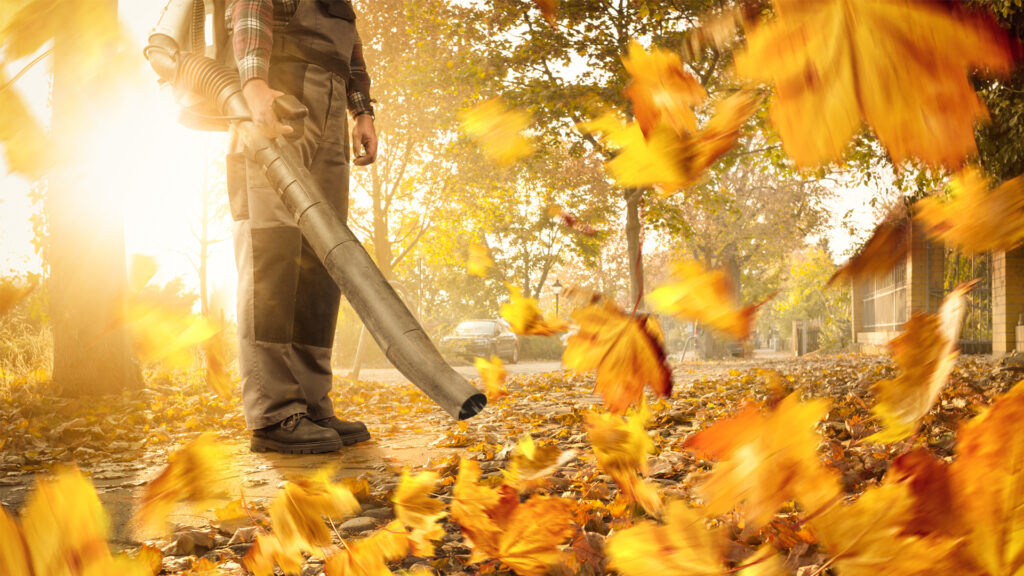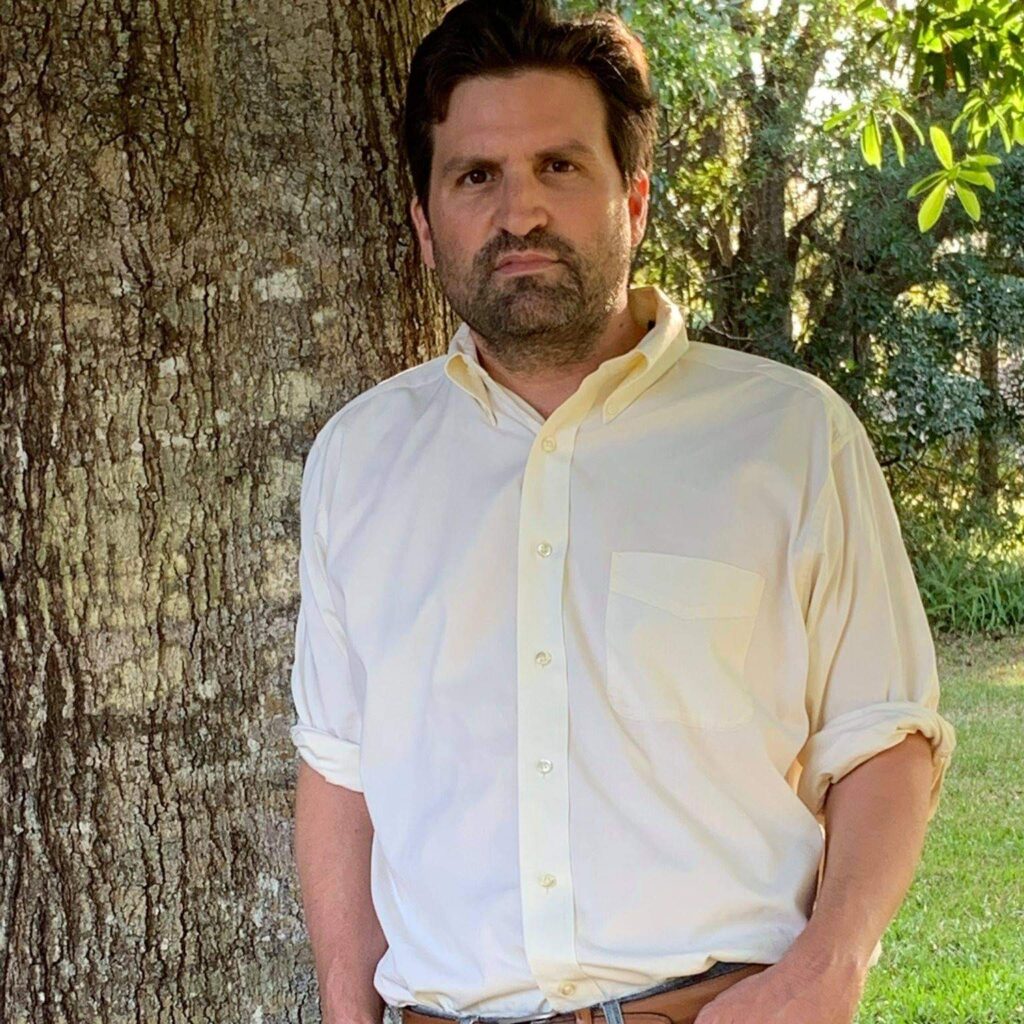By David Vaina
I had always thought of golf and fishing as the most popular hobbies for middle-aged men. But in my neighborhood? It’s leaf blowing.
Like a week-long pickleball match, two neighbors volley leaves back and forth from their lawns – yet no one ever wins. Because I suppose he doesn’t want the fun to end when the gas runs out, another neighbor is always strapped down with two leaf blowers.
This is a Florida neighborhood and we sure have a noisy soundscape here. Excluding tourists, there are 8 eight million cars registered in the state. Annually, 20 million people fly into and out of Orlando.

One survey of South Florida residents in urban neighborhoods found lawn and garden equipment the top noise complaint and far more bothersome than sounds produced by cars and trucks, honking or barking. With climate change extending our growing seasons, lawn mowers and leaf blowers are now used almost year-round.
Noise is an unwanted sound and comes from the Latin for “nausea.” For most of us, noise pollution is just a subjective response. It is a mere annoyance invading our privacy. However, studies have shown that noise is the leading source of residential dissatisfaction (ranked higher than crime and poor housing).
Everyday noise interferes with our concentration and memory, and therefore can affect our work, sleep and study. Emotional reactions to prolonged or repeated exposure to noise include exhaustion, withdrawal and the feeling that one has lost control. Active noise-canceling headphones and all those sound walls dotting Florida’s Turnpike and Interstate 95 don’t seem to help much.
For those in certain industries, noise is a serious health risk. Intense noise levels associated with backpack-style leaf blowers can lead to hearing loss. The World Health Organization found that landscaping crews using several leaf blowers at once generally exceeded the recommended daily noise level. Excessive noise is also linked to increased rates of immune suppression, hypertension and cardiovascular disease.
These hotter years necessitate weekly lawn cuts and have made Florida the national leader in fossil-fuel pollution directly from gas-powered mowers and leaf blowers. To meet carbon-neutrality goals, several Florida cities have passed ordinances banning gas-powered leaf blowers to encourage the transition to electric ones that are quieter and cleaner (though heavier and pricier).
Noise also does a number on the non-human world. Noise at certain levels can reduce crop yields. Human-generated noise can disrupt wildlife’s natural behavioral responses and reduce their reproductive success. Development has pushed wildlife into new habitats. In their new homes, the threats are different as is the food source.

Animals must also adjust to a new “aural niche,” a concept developed by musician Bernard Krause. Each aural niche has a specific frequency, amplitude and timbre, and animals evolve to communicate with one another based on native sounds. Displaced, they lose their capacities to effectively hear and listen, and their chances for long-term survival decline.
People have been complaining about noise far longer than when leaf blowers first hit the market in the 1970s. By the 13th century, many towns had passed legislation prohibiting blacksmiths from working in the early morning because of irritating noises. Hawthorne wrote angrily in the 1800s about the “startling shriek” of the newly invented locomotive.
Today, we seem willing to accept noise as part of progress. Noise has become, as D.H. Lawerence described in “The Rainbow,” a “narcotic to the brain.”
We must now download apps to identify birds. As the indoor generation, we spend more and more time inside. When we do, we may reduce the amount of noise pollution in our lives but we also stop hearing all those beautiful, natural sounds on the outside.
David Vaina has a PhD in political theory and has helped fund, develop and operate Florida nonprofits over the last 15 years. Vaina spends his free time with the woods, forests, rivers and springs in rural North Central Florida, where he lives.
If you are interested in submitting an opinion piece to The Invading Sea, email Editor Nathan Crabbe at ncrabbe@fau.edu. Sign up for The Invading Sea newsletter by visiting here.




Great article although troubling.
David, Thank you for confirming that this high decibel weekly leaf blowing and the lower level but nevertheless intrusive noise from the nearby highway are causing me (and I now know animals as well) undue stress! The question is – what can be done about it?